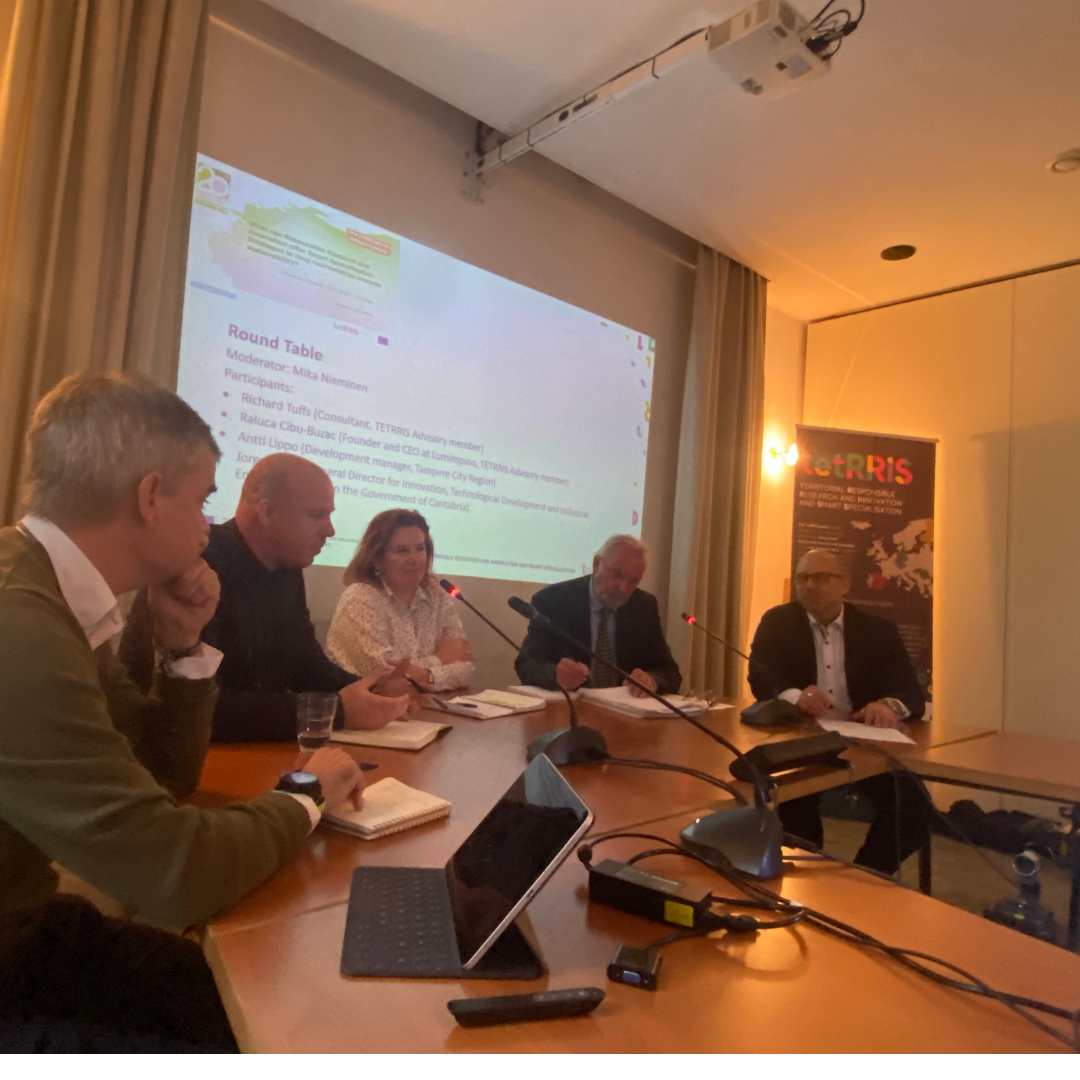The workshop discussed some common questions, challenges, and potential ways forward when it comes to RRI, Smart Specialisation Strategies (S3), Partnerships for Regional Innovation (PRI) and their link with sustainability, and how these concepts can contribute to regional innovation and development policies.
The first keynote speech of the workshop was presented by Kateřina Ciampi Stancova from the OECD focusing on ‘Closing the Circle: Smart Specialisation, local development, and sustainability’.Her presentation looked at the history, criticisms, and evolution of Smart Specialisation in Europe and proposed some changes for how the framework should be revisited and extended in order to foster transformative system innovation. Within the framework, there is also a need for social innovation and welfare in the design of S3, as their original focus was primarily on technological innovation and economic development.
The second keynote speech of the workshop was presented by Hannah Schmidberger from the Joint Research Center on ‘Partnerships for Regional Innovation: Promoting innovation-driving territorial transformation for long-term societal well-being'. Her presentation walked us through the European Commission’s PRI as a new strategic approach to innovation-driven territorial transformation, linking EU priorities with national plans and place-based opportunities and challenges, involving a playbook for design and implementation, a toolbox to support experimentations and an open discovery process. Her presentation concluded by some discussion on rethinking public policy so we can co-create innovation and achieve public value.
Following these presentations was a roundtable of experts moderated by Mika Nieminen, TetRRIS project coordinator from VTT and drew out many insightful comments and questions from the panelists. Richard Tuffs, a member of the TETRRIS Advisory Board posed a number of thought-provoking questions about the connections between the different concepts discussed in this workshop: Does PRI replace S3 or Smart Specialisation Strategies for Sustainability (S4)? Does PRI have synergies with S3/S4? Will PRI link with the new European Bauhaus? How does RRI fit into PRI?
Raluca Cibu-Buzac, the founder and CEO of Luminspino and a TETRRIS Advisory member called for a disruption in how we are doing development and suggests that we need to accelerate and restate how we are going about development. Antti Lippo from the Tampere Region spoke to the importance of experimentation in policymaking, as often times regions do policymaking and strategic planning, but there is the need to test these ideas out and experiment with what works, not to be afraid that experiments may not always succeed. Finally, Jorge Muyo, General Director for Innovation, Technological Development and Industrial Entrepreneurship in the Government of Cantabria, spoke on the challenges of engagement and the need for the right decisions to be made to ensure that the participation process involves the right stakeholders.
Overall, it was a successful event with many in person and virtual participants actively participating resulting in interesting dialogue and questioning that carried on after the workshop.
More information:
The powerpoints from the two presentations during the public workshop can be found here.
The video recording of the workshop can be viewed here.
